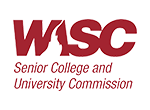
Minor in Political Science
4-week
COURSES
Start sooner and finish faster with our innovative course design.
Year-round
enrollment
Our admissions team reviews applications year-round.
200k+ Alumni Worldwide
Become a member of NU’s global community.
Program Overview
Enhance your social sciences degree by earning a Minor in Political Science. The political science courses cover topics such as Politics of Social Movements, Political Theory, Comparative Politics, Public Policy, Dynamics of World Politics, and more.

The Western Association of Schools and Colleges (WASC) accredits public and private schools, colleges, and universities in the U.S.
Course Details
Course Listing
Program Requirements
Preparation for the Minor
- 2 courses; 9 quarter units
Course Name
Prerequisite: ENG 102
A broad overview of the field of political science including main issues and central questions studies by political scientists and methods used to gain knowledge about politics. A survey course designed to acquaint the student with selective concepts, theories, and of political process.
Prerequisite: ENG 102
A critical introduction to the structure of American government. Topics include classical and modern democratic theories, constitutionalism and federalism; the political process, including the mass media, voting behavior and political parties and interest groups; the institutions of government; the courts, civil liberties and civil rights; and public policy. (Includes study of the Constitution)
*May be used to meet General Education requirements.
Requirements for the Minor
- 6 courses; 27.0 quarter units
Choose six courses from the following:
Course Name
Prerequisite: ENG 102
Introduction to social movements and collective action, covering several theoretical perspectives on how to understand and analyze social movements in recent global history, from their origins to their demise; a global survey of the processes of social and political awareness, mobilization, and development of such movements.
Prerequisite: ENG 102
Survey of political theory and major figures in the history of political philosophical thought. Questions concerning the role of government and the relationship between government and individuals are explored.
Prerequisite: ENG 102
A study of selected foreign states from among industrial, developing, and under developing states, and their development, organization, administration, and politics; introduces students to analytical methods used to compare political systems and governments; explores several issues, including democratization, economic development, political culture and political change.
Prerequisite: ENG 102
A survey of the nature of the international system and the theoretical framework used by political scientists to examine it; in particular, this course focuses on the decision-making process within the international arena. International negotiation and decision-making are utilized.
Prerequisite: ENG 102
An introduction to the public policy process in the United States, theory and practice of process of formulating public policy, why some problems reach the public agenda and why others are rejected, examination of policy making at the national, state and local level, and public policy in foreign political systems.
Prerequisite: ENG 102
This course provides an introduction to European politics, with emphasis on political institutions and politics of Western and Eastern European states, as well as the institutions and policies of the European Union (EU).
Prerequisite: ENG 102
Historical examination of the Middle East region, focusing on the key social forces and the sources of conflict; exploration of the Israeli-Palestinian conflict in-depth and the peace process; exploration of the U.S. involvement in Iraq and elsewhere in the Middle East.
An examination of international relations and politics, the factors underlying international crises from different theoretical perspectives and the future of the global community. Explores the historical and intellectual antecedents of contemporary world events.
Prerequisite: ENG 102; SOC 100
Research design and methods including survey, network, experiment, qualitative, quantitative, and collection, organization and interpretation of research data.
Prerequisite: ENG 102
A critical examination of theories of power, including the relationship of power to culture, social class, the economic order, government, ideology, poverty, race, sex and other topics. Studies community, national and international power structures and institutional leaderships.
Admissions
Enrolling in a university is a big decision. That’s why our dedicated admissions team is here to guide you through the admissions process and help you find the right program for you and your career goals.
To that end, we’ve simplified and streamlined our application process, so you can get enrolled in your program right away. Because we accept and review applications year round, you can begin class as soon as next month, depending on your program and location of choice.
Learn more about undergraduate, graduate, military, and international student admissions, plus admissions information for transfer students. You can also learn more about our tuition rates and financial aid opportunities.
To speak with our admissions team, call (855) 355-6288 or request information and an advisor will contact you shortly. If you’re ready to apply, simply start your application today.

4 WEEK COURSES
Why Choose National University
- Four-Week Courses
- 75+ Degree Programs
- Online or On-Site
- Year-Round Enrollment
- Military Friendly
We’re proud to be a veteran-founded, San Diego-based nonprofit. Since 1971, our mission has been to provide accessible, achievable higher education to adult learners. Today, we educate students from across the U.S. and around the globe, with over 240,000 alumni worldwide.

“National University has impacted my career. You can immediately apply what you learn in class to your business.”
-Francisco R., Class of 2016

FLEXIBLE SCHEDULE

Year of You Scholarship
Do you qualify for a needs-based scholarship? Learn more about the NU Year of You Scholarship and other scholarship opportunities to unlock the door to your dreams!
Program Disclosure
Successful completion and attainment of National University degrees do not lead to automatic or immediate licensure, employment, or certification in any state/country. The University cannot guarantee that any professional organization or business will accept a graduate’s application to sit for any certification, licensure, or related exam for the purpose of professional certification.
Program availability varies by state. Many disciplines, professions, and jobs require disclosure of an individual’s criminal history, and a variety of states require background checks to apply to, or be eligible for, certain certificates, registrations, and licenses. Existence of a criminal history may also subject an individual to denial of an initial application for a certificate, registration, or license and/or result in the revocation or suspension of an existing certificate, registration, or license. Requirements can vary by state, occupation, and/or licensing authority.
NU graduates will be subject to additional requirements on a program, certification/licensure, employment, and state-by-state basis that can include one or more of the following items: internships, practicum experience, additional coursework, exams, tests, drug testing, earning an additional degree, and/or other training/education requirements.
All prospective students are advised to review employment, certification, and/or licensure requirements in their state, and to contact the certification/licensing body of the state and/or country where they intend to obtain certification/licensure to verify that these courses/programs qualify in that state/country, prior to enrolling. Prospective students are also advised to regularly review the state’s/country’s policies and procedures relating to certification/licensure, as those policies are subject to change.
National University degrees do not guarantee employment or salary of any kind. Prospective students are strongly encouraged to review desired job positions to review degrees, education, and/or training required to apply for desired positions. Prospective students should monitor these positions as requirements, salary, and other relevant factors can change over time.